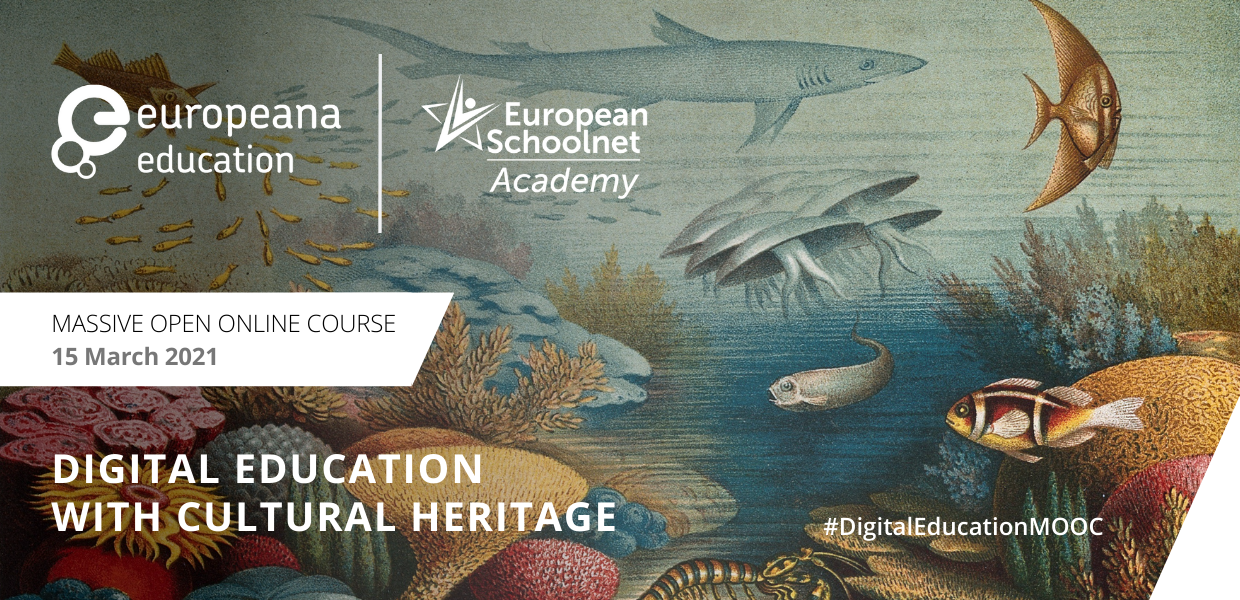What
MOOCs - or Massive Online Open Courses - allow large numbers of participants to learn new skills and develop their knowledge through online teaching. Over the last few years, Europeana MOOCs have trained around 4,000 educators, building their and their students’ resilience and skills for their future.
The Europeana 'Digital Education with Cultural Heritage' MOOC is organised around the principle of peer learning, with course content designed to stimulate reflection and discussion so that participants can learn from each other’s experiences and ideas. The course is offered in English, and participants will receive a digital course certificate and badge upon completion of the full course.
Who
The course is relevant to teachers of all subjects and levels (primary and secondary), museum educators, and anyone who wants to design educational activities using Europeana, like librarians, archivists, curators, and other non-formal educators. Other educational professionals and stakeholders with an interest in the topic, such as heads of schools, school support staff and policy makers in education and culture, are also welcome to join.
When
This course starts on 15 March 2021 and runs for six and half weeks. In total, there are five modules, with one opening weekly and a workload of around 18 hours.
Register now
The MOOC is open for everyone through the European Schoolnet Academy - create an account and register through the link below.


